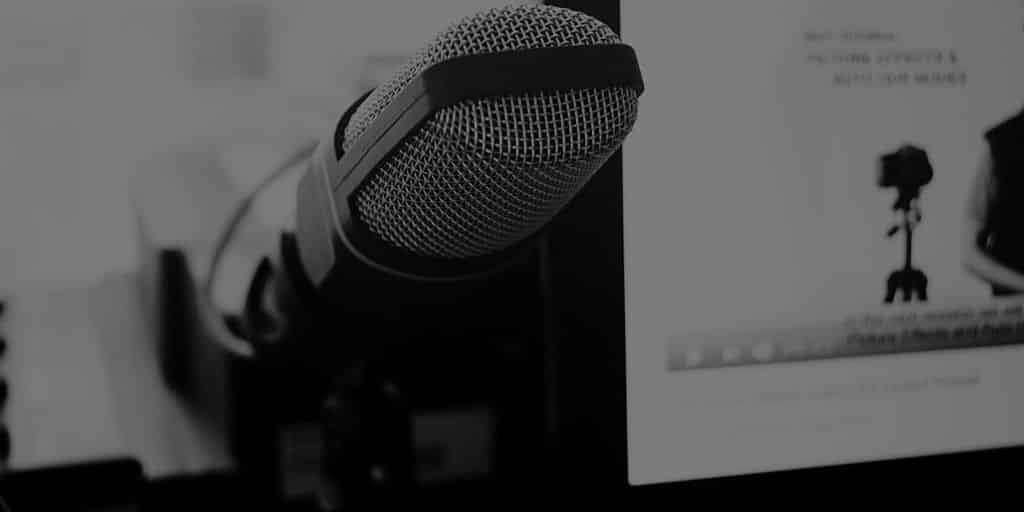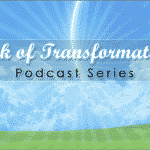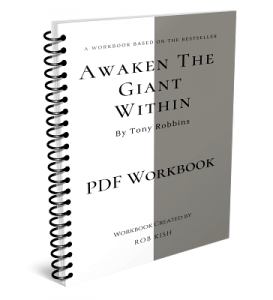WebMD and many other “authorities” are pointing many people searching for the cause of their stress in the completely wrong direction. It’s time to get this one right.
Unfortunately, WebMD has two of the most popular articles on the causes of emotional and psychological stress and they are offering some of the worst information, how ironic right?
Article 1 and Article 2 are blaming nearly everything outside of you, essentially claiming you are a victim of circumstance most of the time. No wonder so many people are stressed, with thoughts like that you are doomed to live a life of chronic emotional and psychological stress.
I guess I should give them credit for their feeble attempt at sourcing the only cause of stress when they said this “Sometimes the stress comes from inside, rather than outside.”.
What Does WebMD Claim To Cause All Of Our Emotional and Psychological Stress?
To bring you closer to the truth of the one and only cause of stress I will bring truth each and every so-called stressor that is listed in both of WebMD’s articles.
As you read on you may resonate with some of the so-called stressors and I want you to know that by no means am I minimizing the challenge of each situation.
I have experienced several of these stressful situations myself, the difference is that I now experience them much differently, and you can too once you understand the one and only cause of your stress.
Your health
Example: Diabetes
The lie: Diabetes is the cause of your stress
The truth: Your thoughts on you having diabetes are the cause of your stress.
Stressful thoughts such as:
“I cannot eat my favourite foods as often as I want now”
“I have no more freedom with food”
“My chances of dying at an earlier age have now increased”
Your relationships
Example: Feeling lack of friendships or support
The lie: The feeling of this lack is the cause of your stress
The truth: Your thoughts that lead to this feeling of lack are the cause of your stress.
Stressful thoughts such as:
“My friends should call me more often”
“I am the one putting in all the work”
“Now is when I need people the most and they aren’t there”
Major life changes
Example: Losing your job
The lie: The loss of your job is the cause of your stress
The truth: Your thoughts on you losing your job are the cause of your stress.
Stressful thoughts such as:
“How am I going to pay the bills?”
“I can’t believe they fired me instead of that low life”
“See, I’m not good enough for this, this proves it”
Stress in your family
Example: Being a caregiver (which I currently am)
The lie: Being a caregiver is the cause of your stress
The truth: Your thoughts on being a caregiver are the cause of your stress.
Stressful thoughts such as:
“I don’t want to lose this person”
“Taking care of this person is such a burden on my life”
“They don’t appreciate what I do for them”
Conflicts with your beliefs and values
Example: You value spending time with your family but don’t spend as much time with them as you would prefer
The lie: Not spending enough time with your family is the cause of your stress
The truth: Your thoughts on not spending enough time with your family are the cause of your stress.
Stressful thoughts such as:
“I should be spending more time with my family”
“If I stop working overtime then I won’t be able to pay the bills, and then we will lose the house, and then my spouse will divorce me, and then I won’t see my kids as often….AHHHHH”
“I am missing my kids growing up by not being there”
Your surroundings
Example: You live in a crowded city
The lie: The crowded city is the cause of your stress
The truth: Your thoughts on you living in a crowded city are the cause of your stress.
Stressful thoughts such as:
“I can’t stand being able to walk to the store while being elbowed 20 times”
“The traffic in this city makes my blood boil”
“I feel like I have no privacy around here”
Your shitty job
Example: Being unhappy with your job
The lie: Your shitty job is the cause of your stress
The truth: Your thoughts on how shitty your job is are the cause of your stress.
Stressful thoughts such as:
“I hate my boss he’s an asshole”
“Everyone at work is so pretentious”
“I cannot believe they haven’t promoted me yet”
Public Speaking
Example: Having to give speeches in front of colleagues
The lie: Giving speeches in front of your colleagues is the cause of your stress
The truth: Your thoughts on giving speeches in front of your colleagues are the cause of your stress.
Stressful thoughts such as:
“What if they don’t like my speech?”
“Now everyone sees how much of a failure I am”
“This will tarnish my flawless reputation if I screw up”
The death of a loved one
Example: You lost your spouse
The lie: The loss of your spouse is the cause of your stress
The truth: Your thoughts on losing your spouse are the cause of your stress.
Stressful thoughts such as:
“Why them? They didn’t deserve it”
“My life is not worth living anymore”
“I can never move on from this”
Relationship problems
Example: Your spouse cheated on you
The lie: Your spouse cheating on you is the cause of your stress
The truth: Your thoughts on your cheating spouse are the cause of your stress.
Stressful thoughts such as:
“I hope they burn in hell after what they did to me”
“I’m not worthy enough for someone to stay loyal to me”
“This relationship was a lie the whole time”
Increase in financial obligations
Example: Extra medical expenses
The lie: The extra medical expenses are the cause of your stress
The truth: Your thoughts on the extra medical expenses are the cause of your stress.
Stressful thoughts such as:
“I cannot believe these expenses are not covered by the damn health care system or insurance, bunch of frauds they are”
“I can’t afford this”
“These drugs are way overpriced, what a ripoff”
Getting married
Example: Planning the wedding
The lie: Planning the wedding is the cause of your stress
The truth: Your thoughts on planning your wedding are the cause of your stress.
Stressful thoughts such as:
“There are so many things to do and not enough time”
“I feel like I am doing all of the work (even though I don’t trust anyone else to get it done)”
“I look horrible, these pictures are going to be an eyesore”
Moving to a new home
Example: Prepping your house for sale
The lie: Prepping your house for sale is the cause of your stress
The truth: Your thoughts on prepping your house for sale are the cause of your stress.
Stressful thoughts such as:
“This house is a pig sty”
“Nobody cares about this damn house but me”
“The house isn’t going to be ready on time”
Chronic illness or injury
Example: Being diagnosed with cancer
The lie: Being diagnosed with cancer is the cause of your stress
The truth: Your thoughts on being diagnosed with cancer are the cause of your stress.
Stressful thoughts such as:
“Why me?”
“I’m going to die sooner than I want”
“My life is over”
Emotional problems
Example: Being diagnosed with depression
The lie: Being diagnosed with depression is the cause of your stress
The truth: Your thoughts on being diagnosed with depression are the cause of your stress.
Stressful thoughts such as:
“This now confirms I am depressed”
“I guess this is the way it is, I am just a depressed person and there is nothing I can do about it”
“I am out of control”
Traumatic events
Example: Having been abused
The lie: Having been abused is the cause of your stress
The truth: Your thoughts on having been abused are the cause of your stress.
Stressful thoughts such as:
“How could anyone else ever love me?”
“I should have been braver and said something earlier”
“I am such a weak person”
Attitudes and perceptions.
Example: Your view of the world
The lie: Your view of the world is the cause of your stress
The truth: Your thoughts that create your view of the world are the cause of your stress. T
Stressful thoughts such as:
“This world is a tough place to live “
“There should only be peace in this world”
“You cannot trust anybody in this world”
Expectations
Example: Having unrealistic expectations
The lie: Having unrealistic expectations is the cause of your stress
The truth: Your thoughts that create your unrealistic expectations are the cause of your stress
Stressful thoughts such as:
“They should know how to do that by now”
“I shouldn’t have to ask twice”
“If I did that for them then they should do this for me”
Have you figured out now what is the ONLY cause of stress?
If you guessed your thoughts you would be wrong. At this point, I can only assume you are extremely confused and I am loving the suspense.
If it is not thoughts that are the only cause of stress then what is it?
OK, OK….are you ready for it?
Are you sure?
It is the thoughts that you believe that are the only cause of your stress!
I would like to say this again as I cannot stress the importance of truly grasping what I am saying.
The thoughts you believe that are the only ones cause your stress
If you don’t believe me, re-read all of the examples from above, but this time read them without believing a single thought from the examples. In fact, how do you imagine you would feel if you believed the opposite of each of those thoughts?
I would like to now review a statement from WebMD that I mentioned in the beginning of the article that says “Sometimes the stress comes from inside, rather than outside.”.
The truth is that “Stress ALWAYS comes from the inside, rather than outside.”
We all have similar thoughts but we all believe different things, how?
How can two people respond differently to the very same situation even if they have the very same thoughts? They each believe different thoughts.
Once you start believing a thought you now give that thought more attention. This attention will lead to a feeling and this feeling will lead to a response. Therefore, different thoughts believed different responses.
Wrapping Up
I sincerely hope that finding out the one and only true cause of your emotional and psychological stress has been an uplifting and liberating experience for you. Believe me, this is one understanding that can truly change your life forever.
I encourage you to take control of the one cause of your stress by only believing in the thoughts that serve you.















































